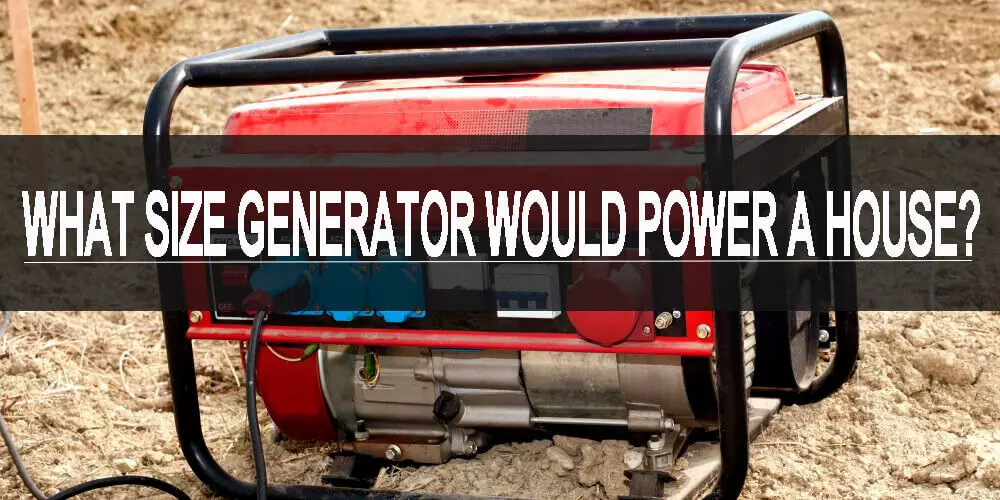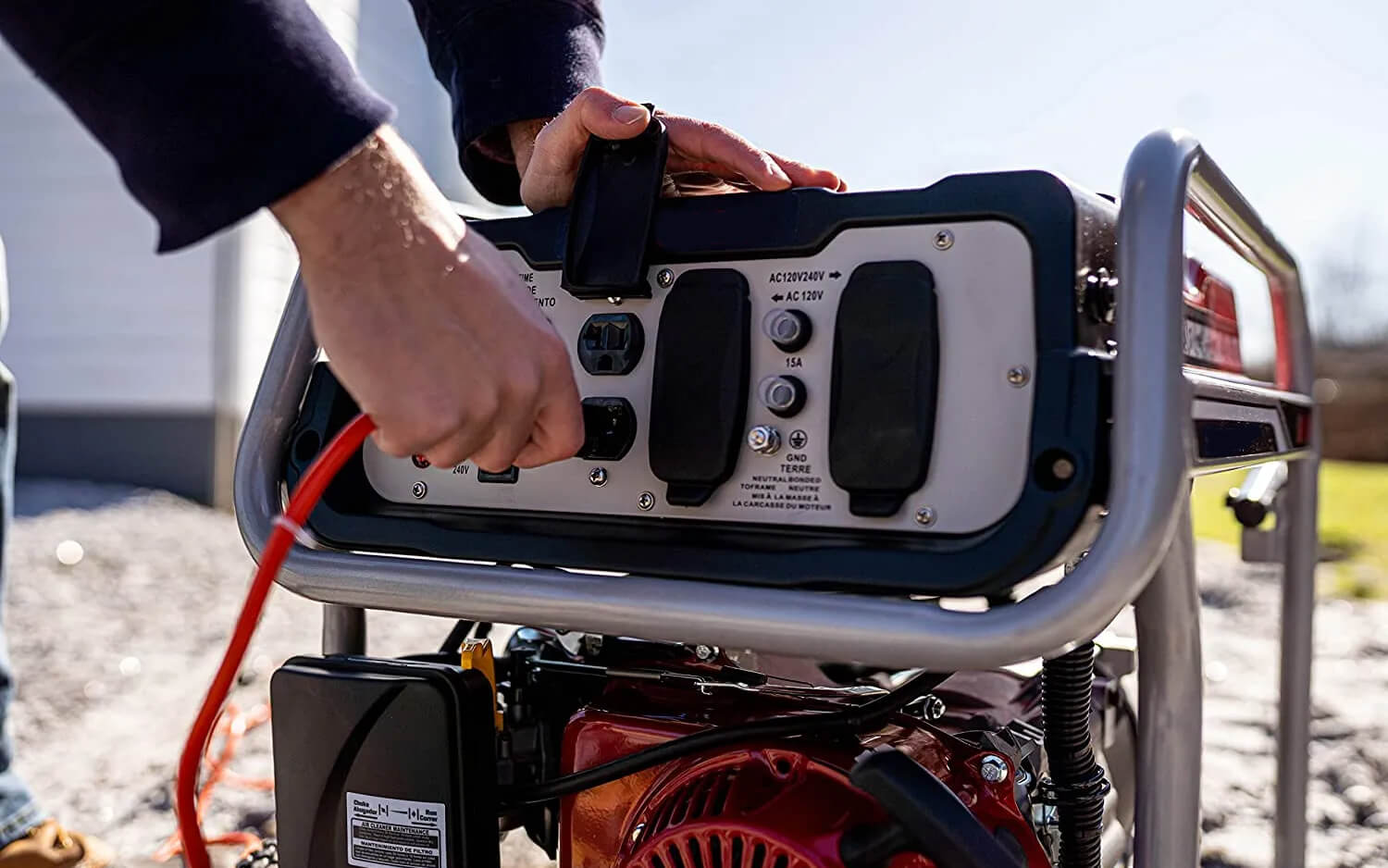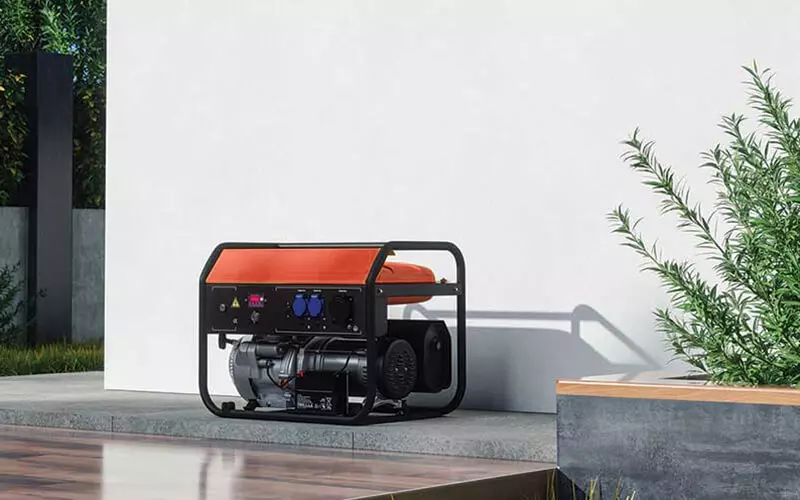24Jul 2024
table of contents

Reliable power is more important than ever. Generators keep lights on, appliances humming, and vital systems functioning when main grid is down.
How do you know right size generator for your home? This question often leads to confusion among many homeowners. However, with assistance from BISON guide, you'll be able to demystify this conundrum and choose perfectly sized generator that aligns with your home's specific requirements, offering you much-needed assurance.
This article will equip you with knowledge to confidently select right generator size for yourneeds. Continue reading to discover essential factors to consider, allowing you to make an informed decision and keep constant comfortable and safe in your family.
Choosing the right size is essential to ensuring you get uninterrupted power.
Bigger isn't always better when it comes to generators! Purchasing one that's more powerful thanyou need is like throwing money away. Here's why:
Pay a premium price: Larger generators cost more upfront, and that extra expense just doesn't make sense if you'll never use its full potential.
Burn money on fuel: Generators operate optimally at a particular load capacity. An oversized generator will be stuck running inefficiently, guzzling more fuel than necessary.
Get ready for higher bills: Bigger generators cost more to maintain and operate. Those extra expenses add up quickly, making it a much pricier option in the long run.
Inadequate power: The biggest danger is that it won't be powerful enough to run your essential appliances and devices, leaving you in the dark.
Overworking and breakdowns: Forcing a small generator to punch above its weight will lead to constant overloading. This results in an enormous stress on the system, leading to regular malfunctions, reducing its lifetime, and posing a risk to your appliances.
Fire hazard: Overloaded generator is a ticking time bomb. It risks severe damage to itself and your appliances, increasing the chances of electrical fires and other dangerous situations.
Reliable power: Right size generator will provide a reliable supply of power that meets your specific needs. To ensures all of your home's essential devices and appliances will function smoothly, keeping you comfortable and safe during power outage.
Economically efficient: Opting for generator that fits your power needs will prevent unnecessaryinitial costs and continual operational costs tied to larger models. It represents a sensible investmentthat will meet your power requirements without overstretching your finances.
Prevent hardware damage: Employing a generator that meets your exact power requirements safe guards against potential harm from excessive or insufficient load. As a result, generator and devices it powers are less prone to suffer damage, leading to an extended service life and areduction in repair expenses.

The essence of generator sizing comes down to identifying its rated and running wattage (wattage).
Rated wattage
The rated wattage of generator refers to its peak output potential, typically quantified in watts or kilowatts. This figure indicates the highest power level that the generator is capable of supplying at any single moment. This is critical to ensuring your generator can handle the peak power demands of all connected appliances and devices without overloading.
Running wattage
This refers to the actual wattage that the generator produces under normal operating conditions. It's crucial to align this with average combined wattage of appliances and electronics that you need to energize. Running wattage must take into account the continuous and surge (starting) wattage of the equipment to prevent overloading the generator when demand suddenly increases.
Essentially, understanding these two key aspects helps ensure your generator can reliably and efficiently meet your needs without being oversized or undersized.
Step 1: List all equipments you plan to use generator to generate electricity.
Step 2: Pinpoint both the continuous and startup wattages for each one on your list.
There are two crucial types of wattage for any appliance:
The chart displayed below provides running and starting wattages for common home devices:
| devices | running wattage(watt) | starting wattage(watt) |
| central air conditioner | 3850 | 4550 |
| freezer | 500 | 1500 |
| furnace | 600 | 1800 |
| lamps | 240 | N/A |
| microwave | 1000 | 1200 |
| television | 200 | N/A |
| computer | 150 | 300 |
| refrigerator | 700 | 2200 |
| washer | 500 | 1300 |
| dryer | 3000 | 6500 |
| dishwasher | 1200 | 1500 |
Step 3: Calculate total power requirements
To work out total power needs of your generator:
Compute running power: Tally up the operational power of all appliances you need to engageconcurrently.
Add highest starting power: Determine which appliance has the highest starting power andinclude this in your total continuous power calculation. This accounts for extra power required tostart the most power-hungry appliance.
For example, providing power to a refrigerator, furnace and lamps:
Refrigerator: 700W running, 2200W starting
Furnace: 600W running, 1800W starting
Lamps: 240W running, n/a for starting
Total running power: 700+1000+240 = 1940W
Peak starting power: 2200W (refrigerator)
Total power requirement = Running power tally +Maximum starting power
So in this scenario: 1940W + 2200W = 4140W
Given this sample, generator with minimum capacity of 4140W would be necessary to comfortably operate these appliances without overshooting generator's output provisions.
By adhering to these three steps, you can successfully calculate the total generator capacity needed to keep your home appliances running during a power failure. Always consider running and starting wattage to ensure your generator can handle peak loads and maintain steady operation.
The capacity of generator required to fuel your home is contingent on the extent of your electrical consumption. Certain homes might warrant higher power demands during blackout, while others might only need fewer appliances running simultaneously. Generally speaking, generator capable of producing between 5000 and 8000 watts can sufficiently energize an average home.

Selecting right generator size is fundamental, but many other factors will also steer your decision, ensuring that you opt for ideal generator tailored to your unique requirements. Here's a rundown of some important factors to contemplate:
Assess frequency and usual length of power outages in your locale. If you reside in a region where power disruptions are frequent, investing in more robust and dependable generator could be a prudent decision.
Understanding nuances between various types of generators can assist you in selecting the most suitable for your requirements:
Portable generator: These generator is adaptable and suit a wide range of uses, though they typically offer less power and aren't the most efficient for sustained use. These are best used sparingly and for smaller power demands.
Standby generator: Fixed outdoors, these generators automatically spring into action when a power outage occurs. They generate more power and provide a steady stream of electricity, making them ideal for extensive power outages and for running an entire household.
Inverter generator: These generators are famed for generating stable, clean electricity, rendering them perfect for delicate electronic equipment. While they are usually quieter and more fuel-efficient, these generators typically generate less power compared to standby generators.
Different generators use a variety of fuels, each with their own advantages and considerations:
Gasoline: Widely available, but can be difficult to store long-term and may not be as efficient.
Propane: Burns cleanly and is easier to store than gasoline, but propane generators generally have a higher initial cost.
Natural gas: It offers a ceaseless fuel supply when linked to natural gas pipeline, although professional installation is required which may entail additional expenses.
Diesel: These are highly effective and ideal for prolonged use, but they are usually louder and carry higher costs.
Pay attention to noise output of generator, particularly if you reside in a residential zone with sound limits. Inverter generators are typically less noisy, whereas larger, high-capacity ones can produce significant noise.
Look for a generator that complies with environmental regulations and has features that reduce emissions. Models with efficient fuel systems or that use cleaner fuels are better for the environment.
Initial cost: Evaluate not only your budget for purchasing the generator, but also potential additional expenses such as installation and accessories.
Maintenance: Consider the frequency and complexity of required maintenance. Certain generators necessitate routine maintenance procedures, such as oil and filter changes.
Portability is critical if you need a generator for multiple locations or occasions. Lightweight, compact models with wheels and handles make it easier to transport.
For standby generators, professional installation is often required, which can add to the overall cost. Make sure you have access to qualified professionals, and consider the logistics of installing the generator, including any necessary permits and inspections.
Take into account warranty and manufacturer's customer support's accessibility. Having a solid warranty and easily accessible support can reduce long-term difficulties and costs.
Consider purchasing a generator recognized for its durability and superior build quality. Doing so will ensure reliable performance and longer life, ultimately providing better value for your money.
Search for characteristics that enhance generator's user-friendliness, like an electric start, intuitively designed controls, and straightforward instructions. These factors are particularly vital during emergencies, as the simplicity of handling the unit becomes crucial.
By considering these additional factors, as well as the size of the generator, you can choose a generator that fits your power needs and ensures a reliable, efficient supply of power during a power outage, or consult BISON to tailor it to your unique situation.
In this piece, BISON thoroughly examines the elements you should take into account when selecting the most suitable generator size for your residence. This includes the rate of power outages, the kind of generator, the type of fuel it uses, the level of noise produced, environmental impact, expenses and upkeep, portability, installation prerequisites, and the potential need for professional assistance. And what is the procedure to pinpoint correct generator size, including calculation steps, enabling you to accurately select right generator.
BISON provides wholesale services of various household generators. Welcome to visit our shop to learn about some popular models. We also support customization to meet your special needs.
inquiry form here
BISON BLOG, All the latest news and views from Bison Machinery.